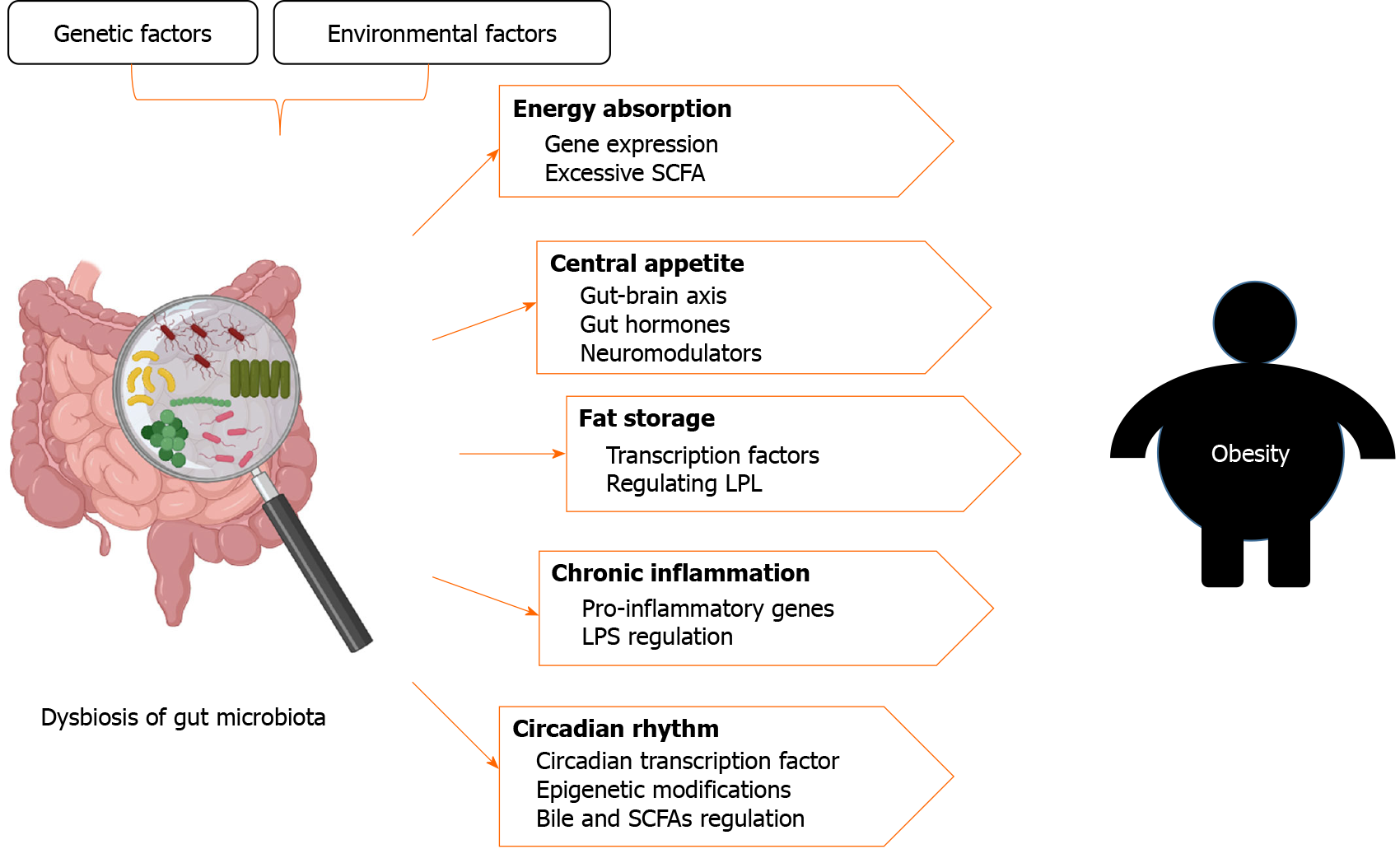Copyright
©The Author(s) 2021.
World J Gastroenterol. Jul 7, 2021; 27(25): 3837-3850
Published online Jul 7, 2021. doi: 10.3748/wjg.v27.i25.3837
Published online Jul 7, 2021. doi: 10.3748/wjg.v27.i25.3837
Figure 1 Gut microbiota and obesity.
Both genetic and environmental factors can cause dysbiosis of the gut microbiota. Dysbiosis can increase energy absorption through changes in gene expression and excessive accumulation of short-chain fatty acids (SCFAs); improve central appetite through gut-brain axis, gut hormones, and neuromodulators; regulate fat storage through transcription factors and lipoprotein lipase; cause chronic inflammation through regulation of inflammatory gene expression and lipopolysaccharide; and disrupt the circadian rhythum by affecting the circadian transcription factors, epigenetic modifications, and the synthesis of bile and SCFAs. These factors appear to increase susceptibility to obesity. The figure was created with BioRender.com. SCFA: Short-chain fatty acids; LPL: Lipoprotein lipase; LPS: Lipopolysaccharide.
- Citation: Liu BN, Liu XT, Liang ZH, Wang JH. Gut microbiota in obesity. World J Gastroenterol 2021; 27(25): 3837-3850
- URL: https://www.wjgnet.com/1007-9327/full/v27/i25/3837.htm
- DOI: https://dx.doi.org/10.3748/wjg.v27.i25.3837









